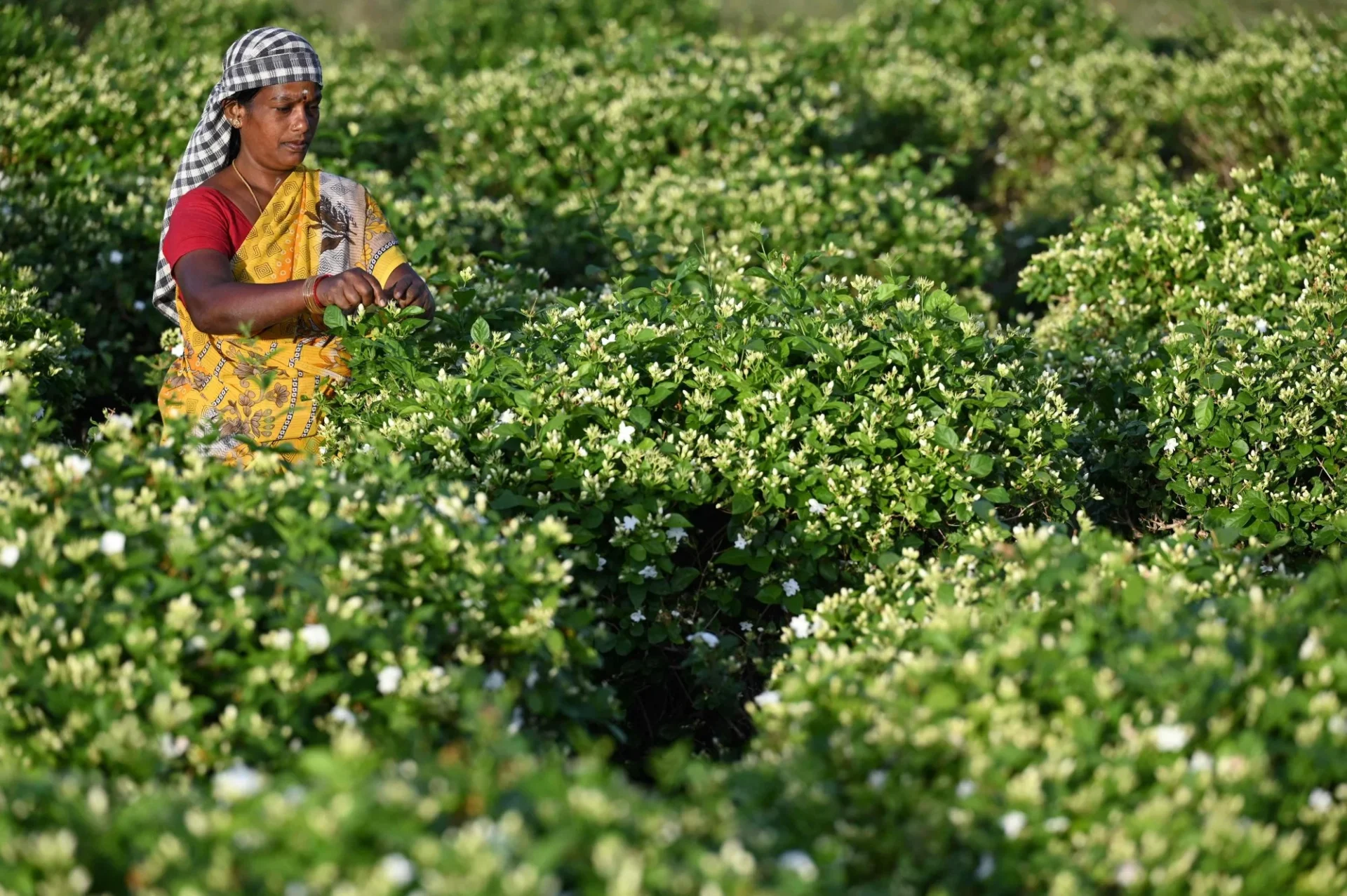In the vibrant landscape of southern India, Madurai stands apart, not just for its historical significance but also for its fragrant white jasmine – the Jasminum sambac. Its aroma envelops the city, from ancient temples to bustling markets. This specific variety of jasmine is more than a flower in Madurai. It’s a symbol, a source of income, and a raw material for some of the most celebrated perfumes worldwide.
Night is the time of allure for the jasmine as it releases its intoxicating scent only when it blooms under the moonlight. Experienced pickers, like Malarkodi, meticulously select buds that haven’t yet unfurled their petals. Occasionally, a bloomed flower finds its way into the picker’s hair, a testament to its enchanting fragrance.
The rich history of jasmine in Madurai traces back millennia. Historically, jasmine has been used to honor deities and has now found its niche in the world of luxury perfumes. Big names like J’adore by Dior and Mon Guerlain by Guerlain owe their captivating fragrances to this flower. Raja Palaniswamy, who helms Jasmine Concrete, elucidates that jasmine oil is among the most expensive globally. His company extracts this essence by squeezing colossal amounts of jasmine, resulting in a few precious droplets of the aromatic oil.
Despite its global appeal, the pickers, predominantly women, earn modestly – around US$1.50 for picking four to five kilograms of jasmine in a day. Each kilogram represents approximately 4,000 buds. The journey from the fields to the markets is swift. The prices for this aromatic marvel can vary, with a kilogram fetching up to US$24 on special days.
Thierry Wasser, the distinguished “nose” at the French beauty house Guerlain, is mesmerized by the Madurai jasmine’s smoothness and distinctive floral note. It’s this signature scent that companies such as Bulgari, Dior, Lush, and Guerlain seek, sourcing their jasmine oil from suppliers like Palaniswamy.
The cultural significance of jasmine transcends its commercial value. In Madurai’s homes and temples, the jasmine serves as both an adornment and an offering. The city’s guardian deity, Meenakshi, is nightly surrounded by these fragrant flowers, a symbol of love and devotion.
Extracting the jasmine oil is an intricate process. From the initial bloom in the dead of night to the final extraction of the potent absolute used in perfumes, meticulous care is taken at each step. This rigorous process means that about 700kg of fresh jasmine translates into just one kilogram of oil, which can be sold for as much as US$4,200.
However, for locals like Amsavalli Karuppuswamy, who crafts garlands from the flower, the raw scent of fresh jasmine will forever overshadow any processed oil. She expresses a sentiment shared by many, “Nothing can match the real fragrance of the jasmine.”
READ MORE:
